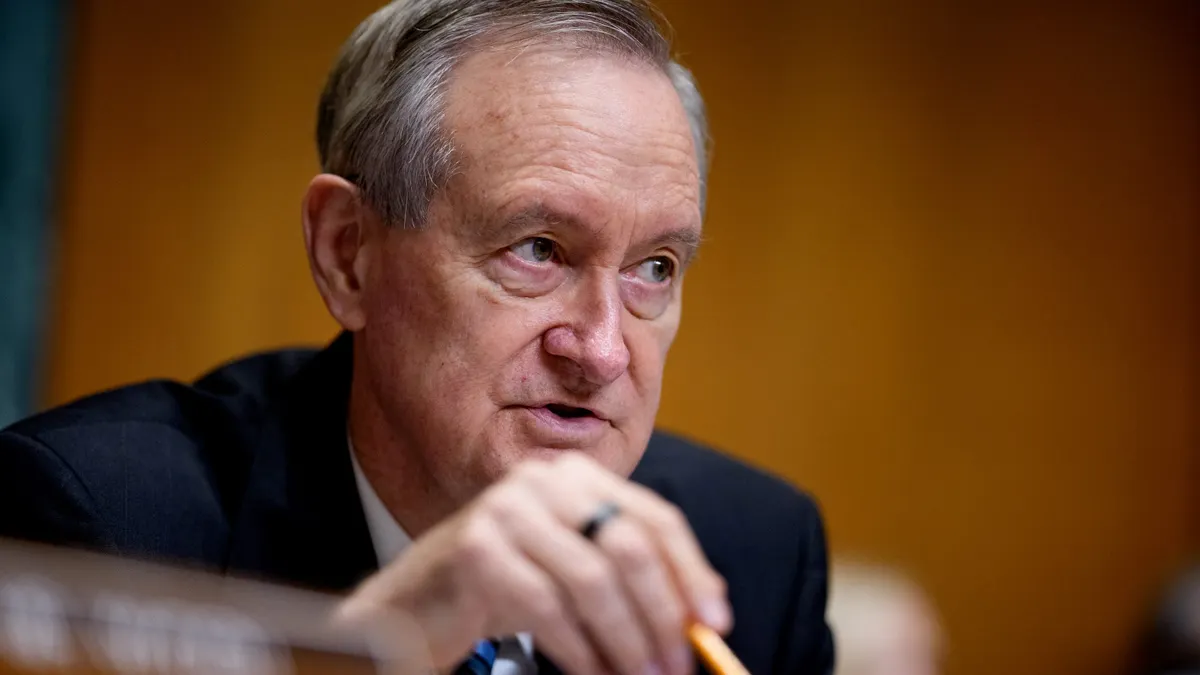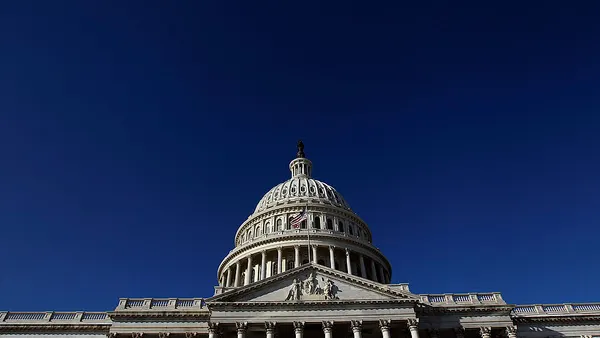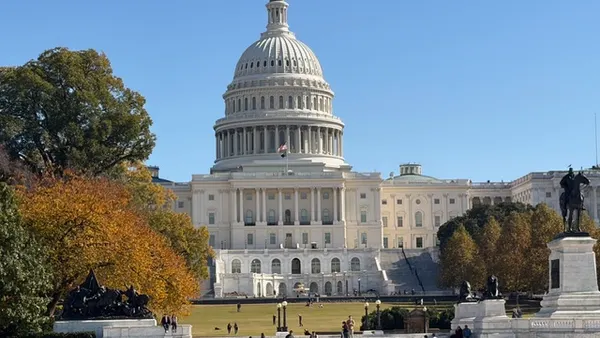Dive Brief:
- Republicans and Democrats in Congress remain largely stuck in partisan gridlock over how to lower healthcare costs. But one area of potential compromise emerged during a contentious Senate Finance Commitee hearing on Wednesday — resuscitating pharmacy benefit manager reform.
- Senate Finance Chair Mike Crapo, R-Idaho, and Ranking Member Ron Wyden, D-Ore., plan to reintroduce a bipartisan package cracking down on PBMs, middlemen in the drug supply chain, Crapo said during the hearing.
- The legislation almost made it out of Congress late last year as part of a larger appropriations bill but eventually failed after public opposition from billionaire Elon Musk, a key ally of President Donald Trump at the time. Crapo said the PBM legislation would be reintroduced “shortly” and hopefully moved to the president’s desk soon after.
Dive Insight:
PBMs sit in between drug companies, payers and pharmacies in the drug supply chain, and wield significant power over what drugs patients receive and at what cost.
The middlemen have become a target for legislators and regulators in Washington looking to make drugs more affordable. In particular, policymakers have taken aim at the “Big Three” PBMs — Express Scripts, CVS Caremark and Optum Rx — that jointly control about 80% of U.S. prescriptions and are all owned by major insurers.
Pharmaceutical companies — which have a vested interest in keeping PBMs in the public spotlight to avoid reform themselves — along with independent pharmacies and some health policy experts argue that vertical consolidation incentivizes PBMs to drive up the cost of medicines and steer patients to in-house pharmacies. PBMs deny this, arguing that they’re the only actor in the U.S. drug supply chain actually incentivized to negotiate lower prices, since they prove their value to employer and payer clients through the savings they’re able to wrangle from drugmakers.
Still, there’s broad bipartisan support for curbing PBMs in Congress, which has given rise to a number of proposals over the past few years, including breaking up PBM conglomerates entirely. Congress got close to passing a package of more moderate reforms last December, slotting them into an annual appropriations bill. However, the PBM language and other healthcare policies were scrubbed before the bill was passed after being criticized by Musk.
Now, the Senate Finance Committee is interested in resuscitating the PBM package, which could potentially end up in appropriations legislation by the end of the year or early next. (Congress has to pass new funding legislation by Jan. 30.)
PBM reform would “realign incentives in the drug supply chain to lower patient costs at the pharmacy counter,” Crapo said during the hearing on Wednesday.
The original package would unhitch PBM compensation from drug prices by requiring plans in Medicare’s Part D prescription drug benefit to pay PBMs a flat fee, instead of allowing them to retain a portion of negotiated drug savings from pharmaceutical companies. PBMs would have to pass through 100% of the rebates they receive from drugmakers to Part D sponsors.
The package would also prohibit PBMs from a controversial practice called spread pricing, in which they charge plans a higher cost for a drug than they pay pharmacies for dispensing it, in Medicaid. It would also require PBMs to provide detailed data on prescription drug spending to federal regulators and their clients.
The policies are broadly popular among pharmacist groups, patient advocates and lawmakers, though it’s uncertain whether such reforms will actually reduce costs for patients.
The Pharmaceutical Care Management Association, the main lobby for the PBM industry, did not respond to a request for comment on the package’s potential reintroduction.
Despite finding a potential path forward for PBM reform, lawmakers appear no closer to shielding Americans from steep cost increases in the Affordable Care Act exchanges set to hit on Jan. 1.
The shrinking window to act means there’s only one feasible solution Congress could implement in time: a clean extension of more generous subsidies for coverage backed by Democrats, health policy experts say. However, an extension is looking increasingly untenable for Republicans given staunch opposition from Trump.













